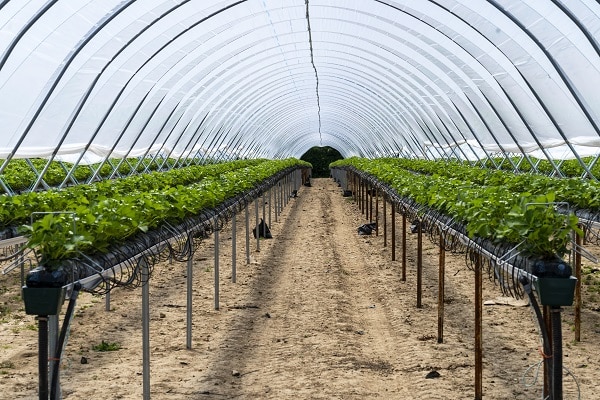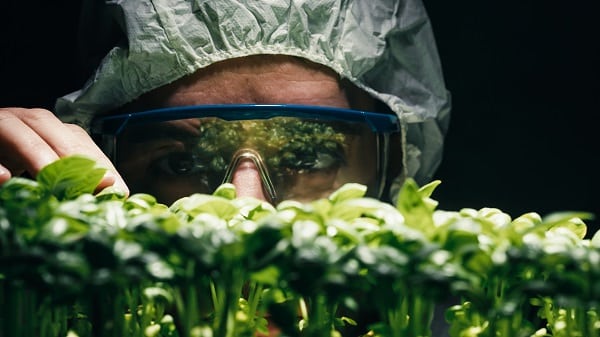Science is constantly revolutionizing the way people cook and eat, from the ingredients they use to the techniques they employ. And with advancements in food science and technology, you can now understand more about the molecular composition of food, how it reacts to heat and other cooking methods, and how it affects your body. From sous-vide cooking to plant-based meat alternatives, science is driving innovation in the culinary world. In this article, you will get a chance to explore some of the ways in which science is changing the way you cook and eat and how it is shaping the future of food.
Contents
The Basics Of Food Science

Food science is an incredibly fascinating field of study. At its core, it involves the study of the physical, biological, and chemical processes that take place in food. There are many different aspects to food science, including things like food preservation, sensory evaluation, and nutrition.
One of the most critical aspects of food science is understanding how food ingredients work together to create the flavors, textures, and appearances that we all know and love. Whether you’re a professional chef or just a curious home cook, learning more about food science can help you create more delicious, nutritious meals for yourself and your loved ones.
Ways Science Is Changing The Way You Cook And Eat
As with every area of science, food science is evolving and changing at a rapid rate. With so many advancements, there are now a number of new cooking techniques that use scientific methods to create dishes with greater flavor and nutritional value. Here is a closer look at a few of the ways science is changing the way you cook and eat.
Sous-Vide Cooking

Sous-vide cooking is a game-changer in the culinary world, revolutionizing how people cook and enjoy their meals. This innovative cooking method involves sealing food in an airtight bag and cooking it in a water bath at a precisely controlled temperature. The result is perfectly cooked, evenly heated food that retains its nutrients and flavors. Sous-vide cooking has gained a massive following in recent years, with chefs and home cooks alike experimenting with different techniques and ingredients.
One of the most significant advantages of sous-vide cooking is its convenience; once you’ve set the temperature and time, you can leave your food to cook while you go about your day. With so many benefits, it’s no wonder that sous-vide cooking is rapidly becoming a staple in kitchens worldwide.
Molecular Gastronomy

The world of culinary arts is constantly evolving, and molecular gastronomy has been at the forefront of this transformation. Chefs and food enthusiasts alike are eagerly embracing this experimental approach, which combines science and art to create entirely new culinary experiences. By using chemical processes and new ingredients, molecular gastronomy has already started to change how people think about cooking and eating.
This avant-garde trend has attracted a large following and will continue to shape the culinary world in the years to come. Exciting times lie ahead for those who seek to push the boundaries of what is possible in the kitchen.
Precision Farming

With advanced technologies like sensors, drones, and GPS systems, farmers are now able to monitor and manage their crops down to the square inch. This level of accuracy and efficiency means that the food you eat is fresher, healthier, and more sustainably produced. But the impact of precision farming goes beyond just the farm – it’s changing the way you cook and eat, too.
From gourmet chefs to home cooks, people are embracing seasonal, locally-sourced ingredients and experimenting with new flavors and cooking techniques. The result is a more diverse and exciting culinary landscape that celebrates the earth’s bounties and supports the planet’s health.
Genetically Modified Foods

The emergence of genetically modified foods has transformed the way people look at their plates. With genetic engineering, scientists have created crops resistant to pests and diseases, grow faster, and produce higher yields. As a result, people now have access to a wider variety of fruits and vegetables all year round. While GMOs have sparked controversy and skepticism, there’s no denying that they have changed how people cook and eat.
GMO crops may be found in many foods you consume daily, whether corn in your cereal or soy in your tofu. But what impact do these foods have on your health and the environment? The debate continues, but one thing is clear: genetically modified foods are here to stay, and they will continue to influence the way people approach food production and consumption.
Plant-Based Meats

As more people become aware of the benefits of a plant-based diet, the demand for meat alternatives is on the rise. Enter plant-based meats, a new frontier in the world of vegan cuisine. Using groundbreaking scientific techniques, companies are creating products that mimic the taste, texture, and even the smell of conventional meats without the use of animal products. This is not only changing the way that vegetarians and vegans eat but also how omnivores approach their meals.
With plant-based meats becoming widely available in supermarkets and restaurants, it’s easier than ever to reduce your environmental impact and improve your health without sacrificing flavor. From burgers to sausages to chicken nuggets, the possibilities of the plant-based meat revolution are endless.
Sensory Analysis

Finally, the science of sensory analysis is revolutionizing the way chefs think about food. It’s no longer just about the ingredients but also how they taste, smell, and feel in your mouth. This field of study focuses on understanding how your senses interact with food and drink and how you can use this knowledge to create better culinary experiences.
Chefs and food manufacturers alike are using sensory analysis to develop new recipes, improve existing ones, and even create entirely new products. Consumers are also benefiting from this science, with a greater emphasis on flavor and texture when choosing what to eat. It’s clear that sensory analysis has a crucial role to play in shaping the future of food.
It’s Clear Science Is Changing The Way You Cook And Eat!
It’s an exciting time to be involved in the world of food. Technology has opened up a whole new realm of possibilities for how people produce, consume, and experience food. From precision farming to plant-based meats to sensory analysis, these innovations are paving the way for those who seek to push the boundaries of what is possible in the kitchen. So the next time you sit down to a meal, take a moment to appreciate the ways science is changing the way you cook and eat.


